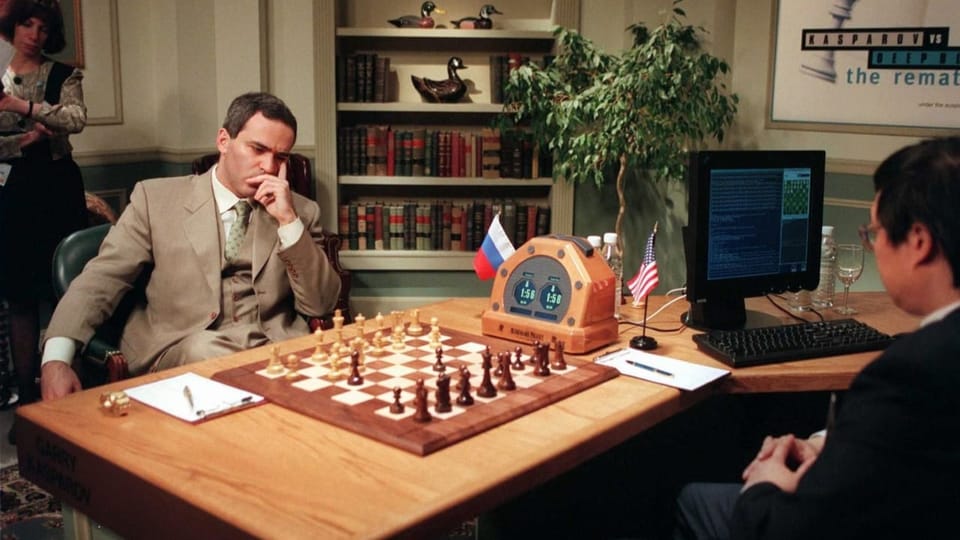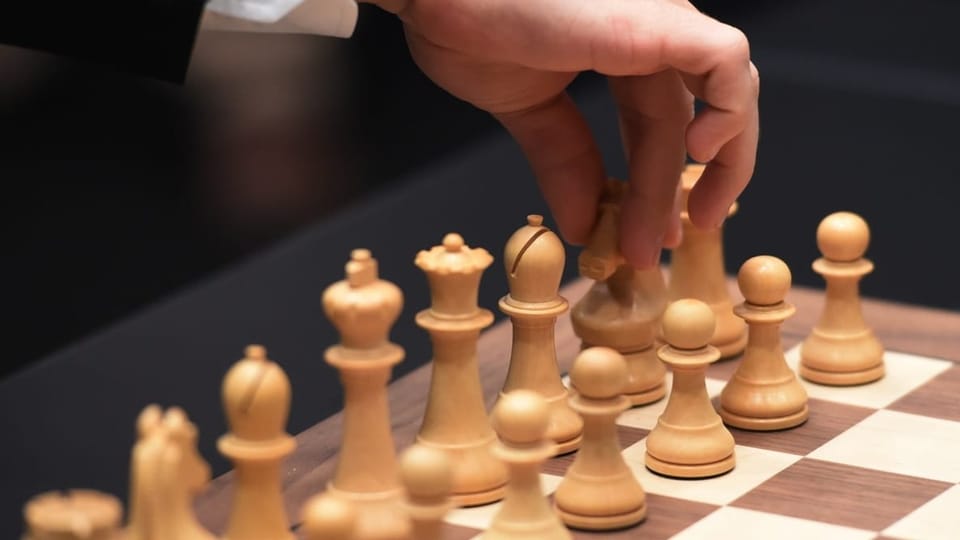The controversial Grand Master is said to have cheated in more than 100 online games. Chess champion Richard Forster regarding the allegations.
The chess world has been in turmoil for a good month: the main characters are world chess champion, 31-year-old Magnus Carlsen, and young, rising talent, 19-year-old American Major Hans. Nieman.
Carlsen accuses Niemann of fraud. Two weeks ago he even stopped a match against his opponent because of this – after the first move.
Caption:
Carlsen accuses his US counterpart of fraud: “I think Neiman – even recently – cheated more than he publicly admitted.”
Keystone / EPA / Koen van Weel
The world champion is backed by a study conducted by the online platform chess.com. 72-page report He came to the conclusion that Niemann may have cheated in more than a hundred online chess games and only won thanks to computer help.
In order to come to their verdict, the online platform conducted extensive assessments of the data. “In this way, irregularities can be detected and also when someone plays just like the best computers or even like a specific computer program,” says international chess champion Richard Forster.
In the end, these are only indicators and not a guide. Neiman previously admitted to cheating twice as a teenager, between the ages of 12 and 16, in online games, but never in person on the chessboard.
But how does chess cheat work? “In the end, it’s about improving your playing power with unauthorized utilities. And it’s chess programs, the best of which are now playing much better than the world champion,” explains Forster.
The main factor behind machines’ superiority over humans lies in the increasing computing power of today’s computers. “This made a lot of possible things that were previously just theoretical models.”

Caption:
Mainframes are no longer needed, as was the case in the legendary duel between Garry Kasparrow and Deep Blue. In 1996, he succeeded in becoming the first chess computer to beat the world champion. World Champion programs run on every smartphone today.
Keystone / AP / Adam Nadel
Step by step, the program has now been able to predict an “explosion of combinatorial possibilities” – much faster and farther than a human opponent. “In the past, programs have had great difficulty making good judgment on the end of these diverse trees.”
The better the players, the lower the chance of cheating. Because the professional player risks his livelihood if he gets caught.
It is difficult to estimate how common such scams are. According to the chess master, the temptation of amateurs to resort to technical assistance is a great deal. “The better the players are, the less likely they are to cheat. Because a professional player risks his livelihood if he is exposed.”
In tournaments where players play against each other locally, cheating is more difficult. In international tournaments, players are usually x-rayed as they are at the airport. “They are checked at the entrance for electronics like receivers hidden in their ears,” Forster says. The effort to overcome these obstacles is great.
Fantasy intellectual journeys with “computer stimulants”
Unlike athletics, for example, “computer doping” doesn’t make you a little better. “It gives you the opportunity to play much better than the world champion. If someone does that, they will be caught immediately.” So cheating has to be learned, and it takes one human or other maneuver not to arouse suspicion.

Caption:
Exaggeration in playing makes itself suspicious: anyone who suddenly pushes his normal level of chess performance to unimaginable heights is like a limited 100-meter runner who suddenly broke the world record.
Keystone / EPA / Facundo Arrizabalaga
However, Forster concludes with a philosophical note: “I am convinced that the human spirit is getting more and more greedy. Especially when he sees how easy it is to cheat. At some point, most of them cross the border and get caught.”

“Creator. Troublemaker. Reader. Tv nerd. Proud beer advocate. Unable to type with boxing gloves on. Introvert. Certified zombie practitioner. Thinker.”






More Stories
Marco Odermatt is happy to have Marcel Hirscher back
From Auerbach to Orlando – the fans go to the World Cup
Marcel Hirscher wants to return to the Netherlands